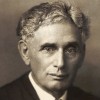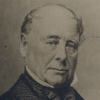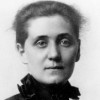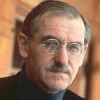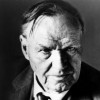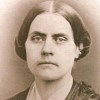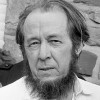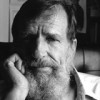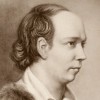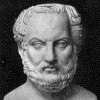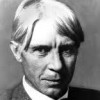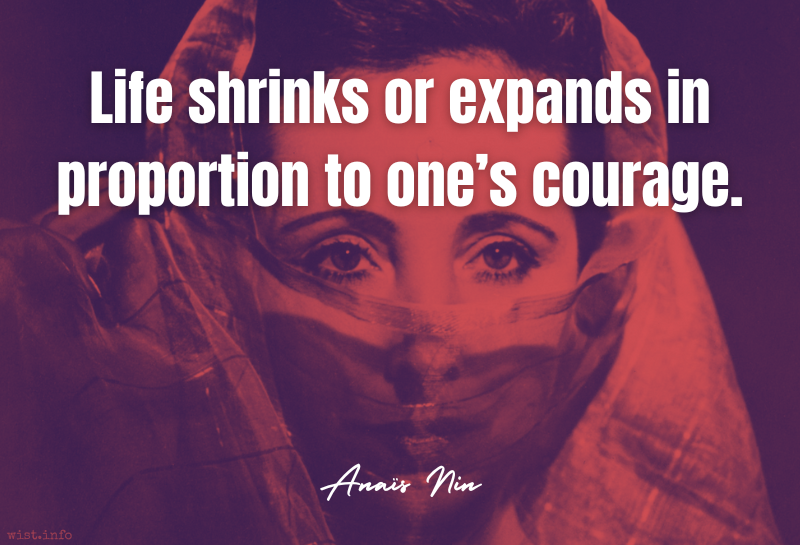Quotations about:
courage
Note not all quotations have been tagged, so Search may find additional quotes on this topic.
Providence requires three things of us afore it will help us — a stout heart, a strong arm, and a stiff upper lip.
Thomas Chandler Haliburton (1796-1865) Canadian politician, judge, humorist
Sam Slick’s Wise Saws and Modern Instances, Vol. 1 ch. 13 “The House without Hope” (1853)
(Source)
But I tell you the New Frontier is here, whether we seek it or not. Beyond that frontier are the uncharted areas of science and space, unsolved problems of peace and war, unconquered pockets of ignorance and prejudice, unanswered questions of poverty and surplus. It would be easier to shrink back from that frontier, to look to the safe mediocrity of the past, to be lulled by good intentions and high rhetoric — and those who prefer that course should not cast their votes for me, regardless of party. But I believe the times demand new invention, innovation, imagination, decision. I am asking each of you to be pioneers on that New Frontier. My call is to the young in heart, regardless of age — to all who respond to the Scriptural call: “Be strong and of a good courage; be not afraid, neither be thou dismayed.” For courage — not complacency — is our need today — leadership — not salesmanship. And the only valid test of leadership is the ability to lead, and lead vigorously.
Your spirit, youth, and valour give me heart, not to mention necessity, which makes even the timid brave.
[Animus, aetas, virtus vostra me hortantur, praeterea necessitudo, que etiam timidos fortis facit.]
Sallust (c. 86-35 BC) Roman historian and politician [Gaius Sallustius Crispus]
Bellum Catilinae [The War of Catiline; The Conspiracy of Catiline], ch. 58, sent. 19 [tr. Rolfe (1931)]
(Source)
Catiline, addressing his troops. Usually shortened to "Necessity makes even the timid brave" [Necessitas etiam timidos fortes facit.]. Original Latin.
Alt. trans.:
- "From your youthful vigor and undaunted courage I expect every advantage. Even the difficulties of our situation inspire me with confidence; for difficulties have often produced prodigies of valor." [tr. Murphy (1807)]
- "Your spirit, your age, your virtue encourage me; and our necessity, too, which even inspires cowards with bravery." [tr. Rose (1831), ch. 61]
- "Your spirit, your age, your valour encourage me, the necessity moreover which makes even the timid brave." [Source (1841)]
- "Your spirit, your age, your valor, give me confidence; to say nothing of necessity, which makes even cowards brave." [tr. Watson (1867)]
- "Your resolution, your age, and your courage, and above all the inevitable nature of the encounter, which often makes even the timid brave, exhort me to this." [tr. Pollard (1882)]
Courage is a quality so necessary for maintaining virtue that it is always respected, even when it is associated with vice.
Samuel Johnson (1709-1784) English writer, lexicographer, critic
Comment (11 Jun 1784)
(Source)
In James Boswell, The Life of Samuel Johnson (1791)
To do what you are afraid to do is to guide your life by fear. How much better not to be afraid to do what you believe in doing!
Courage (in a soldier) is maintained by a certain anger; anger is a little blind and likes to strike out. And from this follows a thousand abuses, a thousand evils and misfortunes that are impossible to predict in an army during war.
Do one thing every day that scares you.
Mary Schmich (b. 1953) American newspaper columnist
“Advice, Like Youth, Probably Just Wasted on the Young,” Chicago Tribune (1 Jul 1997)
(Source)
Often attributed to Eleanor Roosevelt, but no reference found in her works or contemporaneous sources (though see this). Also attributed to Kurt Vonnegut and to Baz Luhrmann (who used the words in a song but credited them to Schmich).
Related predecessors can be found in other quotations (Emerson, Jane Addams, Mark Toby), linked back to this one below. See here for more research into this quotation.
It is always easier to hear an insult and not retaliate than have the courage to fight back against someone stronger than yourself; we can always say we’re not hurt by the stones others throw at us, and it’s only at night — when we’re alone and our wife or our husband or our school friend is asleep — that we can silently grieve over our own cowardice.
The virtue of Prosperity is temperance; the virtue of Adversity is fortitude.
Francis Bacon (1561-1626) English philosopher, scientist, author, statesman
“Of Adversity,” Essays, No. 5 (1625)
(Source)
Each of you, for himself, by himself and on his own responsibility, must speak. And it is a solemn and weighty responsibility, and not lightly to be flung aside at the bullying of pulpit, press, government, or the empty catch-phrases of politicians. Each must for himself alone decide what is right and what is wrong, and which course is patriotic and which isn’t. You cannot shirk this and be a man. To decide against your convictions is to be an unqualified and inexcusable traitor, both to yourself and to your country, let men label you as they may. If you alone of all the nation shall decide one way, and that way be the right way according to your convictions of the right, you have done your duty by yourself and by your country — hold up your head! You have nothing to be ashamed of.
Respectfulness, without the rules of propriety, becomes laborious bustle; carefulness, without the rules of propriety, becomes timidity; boldness, without the rules of propriety, becomes insubordination; straightforwardness, without the rules of propriety, becomes rudeness.
[恭而無禮則勞、愼而無禮則葸、勇而無禮則亂、直而無禮則絞。]
Confucius (c. 551- c. 479 BC) Chinese philosopher, sage, politician [孔夫子 (Kǒng Fūzǐ, K'ung Fu-tzu, K'ung Fu Tse), 孔子 (Kǒngzǐ, Chungni), 孔丘 (Kǒng Qiū, K'ung Ch'iu)]
The Analects [論語, 论语, Lúnyǔ], Book 8, verse 2 (8.2.1) (6th C. BC – AD 3rd C.) [tr. Legge (1861)]
(Source)
(Source (Chinese)). Brooks (below) believes this text was interpolated into Book 8 at the time that Book 14 was collected. Alternate translations:
Without the Proprieties, we have these results: for deferential demeanour, a worried one; for calm attentiveness, awkward bashfulness; for manly conduct, disorderliness; for straightforwardness, perversity.
[tr. Jennings (1895)]
Earnestness without judgment becomes pedantry; caution without judgment becomes timidity; courage without judgment leads to crime; uprightness without judgment makes men tyrannical.
[tr. Ku Hung-Ming (1898)]
Courtesy uncontrolled by the laws of good taste becomes labored effort, caution uncontrolled becomes timidity, boldness uncontrolled becomes recklessness, and frankness uncontrolled become effrontery.
[tr. Soothill (1910)]
Respect without rules of procedure becomes laborious fuss: scrupulosity without rules of procedure, timidity (fear to show the thought); boldness without such rules breeds confusion; directness without rules of procedure becomes rude.
[tr. Pound (1933)]
Courtesy not bounded by the prescriptions of ritual becomes tiresome. Caution not bounded by the prescriptions of ritual becomes timidity, daring becomes turbulence, inflexibility becomes harshness.
[tr. Waley (1938)]
Not to follow the rites in being modest is annoyance. Not to follow them in exercising care is timidity. Not to follow them in acts of bravery is confusion. Not to follow them in our uprightness is brusqueness.
[tr. Ware (1950)]
Unless a man has the spirit of the rites, in being respectful he will wear himself out, in being careful he will become timid, in having courage he will become unruly, and in being forthright he will become intolerant.
[tr. Lau (1979)]
If one is courteous but does without ritual, then one dissipates one's energies; if one is cautious but does without ritual, then one becomes timid; if one is bold but does without ritual, then one becomes reckless; if one is forthright but does without ritual, then one becomes rude.
[tr. Dawson (1993)]
Without ritual, courtesy is tiresome; without ritual, prudence is timid; without ritual, bravery is quarrelsome; without ritual, frankness is hurtful.
[tr. Leys (1997)]
Respectfulness without the rituals becomes laboriousness; discretion without the rituals becomes apprehensiveness; courage without the rituals becomes rebelliousness; straightforwardness without the rituals becomes impetuosity.
[tr. Huang (1997)]
One would be tired if one is humble but not polite; One would be week if one is cautious but not polite; One would be foolhardy if one is brave but not polite; One would be caustic if one is frank but not polite.
[tr. Cai/Yu (1998), #190]
Deference unmediated by observing ritual propriety [li] is lethargy; caution unmediated by observing ritual propriety is timidity; boldness unmediated by observing ritual propriety is rowdiness; candor unmediated by observing ritual propriety is rudeness.
[tr. Ames/Rosemont (1998)]
If he is respectful without propriety, he becomes wearisome. If he is careful without propriety, he becomes finicky. If he is brave without propriety, he becomes disruptive. If he is upright without propriety, he becomes censorious.
[tr. Brooks/Brooks (1998)]
Reverence becomes tedium without Ritual, and caution becomes timidity. Without Ritual, courage becomes recklessness, and truth becomes intolerance.
[tr. Hinton (1998)]
If you are respectful but lack ritual you will become exasperating; if you are careful but lack ritual you will become timid; if you are courageous but lack ritual you will become unruly; and if you are upright but lack ritual you will become inflexible.
[tr. Slingerland (2003)]
Courtesy without ritual becomes labored; caution without ritual becomes timidity; daring without ritual becomes riotousness; directness without ritual becomes obtrusiveness.
[tr. Watson (2007)]
Unless a man acts according to the spirit of the rites, in being respectful, he will tire himself out; in being cautious, he will become timid; in being brave, he will become unruly; in being forthright, he will become derisive.
[tr. Chin (2014)]
A pound of pluck is worth a ton of luck.
James A. Garfield (1831-1881) US President (1881), lawyer, lay preacher, educator
“Elements of Success,” speech, Spencerian Business College, Washington, D.C. (29 Jul 1869)
(Source)
Virtues, however, we acquire by first exercising them. The same is true with skills, since what we need to learn before doing, we learn by doing; for example, we become builders by building, and lyre-players by playing the lyre. So too we become just by doing just actions, temperate by temperate actions, and courageous by courageous actions.
[τὰς δ’ ἀρετὰς λαμβάνομεν ἐνεργήσαντες πρότερον, ὥσπερ καὶ ἐπὶ τῶν ἄλλων τεχνῶν· ἃ γὰρ δεῖ μαθόντας ποιεῖν, ταῦτα ποιοῦντες μανθάνομεν, οἷον οἰκοδομοῦντες οἰκοδόμοι γίνονται καὶ κιθαρίζοντες κιθαρισταί· οὕτω δὴ καὶ τὰ μὲν δίκαια πράττοντες δίκαιοι γινόμεθα, τὰ δὲ σώφρονα σώφρονες, τὰ δ’ ἀνδρεῖα ἀνδρεῖοι.]
Aristotle (384-322 BC) Greek philosopher
Nicomachean Ethics [Ἠθικὰ Νικομάχεια], Book 2, ch. 1 (2.1, 1103a.32ff) (c. 325 BC) [tr. Crisp (2000)]
(Source)
(Source (Greek)). Alternate translations:
But the Virtues we get by first performing single acts of working, which, again, is the case of other things, as the arts for instance; for what we have to make when we have learned how, these we learn how to make by making: men come to be builders, for instance, by building; harp-players, by playing on the harp: exactly so, by doing just actions we come to be just; by doing the actions of self-mastery we come to be perfected in self-mastery; and by doing brave actions brave.
[tr. Chase (1847)]
But the virtues we acquire by previous practice of their acts, exactly as we acquire our knowledge of the various arts. For, in the case of the arts, that which we have to be taught to do, that we learn by doing it. We become masons, for instance, by building; and harpers b y playing upon the harp. And so, in like manner, we become just by doing what is just, temperate by doing what is temperate, and brave by doing what is brave.
[tr. Williams (1869), sec. 23]
But the virtues we acquire by first exercising them, as is the case with all the arts, for it is by doing what we ought to do when we have learnt the arts that we learn the arts themselves; we become e.g. builders by building and harpists by playing the harp. Similarly it is by doing just acts that we become just, by doing temperate acts that we become temperate, by doing courageous acts that we become courageous.
[tr. Welldon (1892)]
But the virtues we acquire by doing the acts, as is the case with the arts too. We learn an art by doing that which we wish to do when we have learned it; we become builders by building, and harpers by harping. And so by doing just acts we become just, and by doing acts of temperance and courage we become temperate and courageous.
[tr. Peters (1893)]
But the virtues we get by first exercising them, as also happens in the case of the arts as well. For the things we have to learn before we can do them, we learn by doing them, e.g. men become builders by building and lyreplayers by playing the lyre; so too we become just by doing just acts, temperate by doing temperate acts, brave by doing brave acts.
[tr. Ross (1908)]
The virtues on the other hand we acquire by first having actually practised them, just as we do the arts. We learn an art or craft by doing the things that we shall have to do when we have learnt it: for instance, men become builders by building houses, harpers by playing on the harp. Similarly we become just by doing just acts, temperate by doing temperate acts, brave by doing brave acts.
[tr. Rackham (1934), ch. 1, sec. 4]
The virtues, by contrast, we acquire by first engaging in the activities, as is also true in the case of the various crafts. For the things we cannot produce without learning to do so are the very ones we learn to produce by producing them -- for example, we become builders by building houses and lyre players by playing the lyre. Similarly, then, we become just people by doing just actions, temperate people by doing temperate actions, and courageous people by doing courageous ones.
[tr. Reeve (1948)]
In the case of the virtues, on the other hand, we acquire them as a result of prior activities; and this is like the case of the arts, for that which we are to perform by art after learning, we first learn by performing, e.g., we become builders by building and lyre-players by playing the lyre. Similarly, we become just by doing what is just, temperate by doing what is temperate, and brave by doing brave deeds.
[tr. Apostle (1975)]
Virtues, by contrast, we acquire, just as we acquire crafts, by having previously activated them. For we learn a craft by producing the same product that we must produce when we have learned it, becoming builders, for instance, by building and harpists by playing the harp, so also, then, we become just by doing just actions, temperate by doing temperate actions, brave by doing brave actions.
[tr. Irwin/Fine (1995)]
For as regards those things we must learn how to do, we learn by doing them -- for example by building houses, people become house builders, and by playing the cithara, they become cithara players. So too, then, by doing just things become just; moderate things, moderate; and courageous things, courageous.
[tr. Bartlett/Collins (2011)]
We develop virtues after we have practiced them beforehand, the same way it works with the other arts. For, we learn as we do those very things we need to do once we have learned the art completely. So, for example, men become carpenters by building homes and lyre-players by practicing the lyre. In the same way, we become just by doing just things, prudent by practicing wisdom, and brave by committing brave deeds.
[tr. @sentantiq (2017)]
When a resolute young fellow steps up to the great bully, the world, and takes him boldly by the beard, he is often surprised to find it comes off in his hand, and that it was only tied on to scare away the timid adventurers.
Oliver Wendell Holmes, Sr. (1809-1894) American poet, essayist, scholar
Elsie Venner, ch. 2 (1891)
(Source)
Often misattributed to Ralph Waldo Emerson.
Courage is the price that life exacts for granting peace.
The soul that knows it not knows no release
From little things.
Courage charms us becaue it indicates that a man loves an idea better than all the things in the world, that he is thinking neither of his bed, nor his dinner, nor hismoney, but will venture all to put in act the invisible thought of his mind.
So the courageous person is the one who endures and fears — and likewise is confident about — the right things, for the right reason, in the right way, and at the right time.
[ὁ μὲν οὖν ἃ δεῖ καὶ οὗ ἕνεκα ὑπομένων καὶ φοβούμενος, καὶ ὡς δεῖ καὶ ὅτε, ὁμοίως δὲ καὶ θαρρῶν, ἀνδρεῖος.]
Aristotle (384-322 BC) Greek philosopher
Nicomachean Ethics [Ἠθικὰ Νικομάχεια], Book 3, ch. 7 (3.7.5) / 1115b.19 (c. 325 BC) [tr. Crisp (2000)]
(Source)
(Source (Greek)). Alternate translations:
He is Brave then who withstands, and fears, and is bold, in respect of right objects, from a right motive, in right manner, and at right times.
[tr. Chase (1847), ch. 10]
He then who with the right end in view faces what he ought, and fears it, and does so as he ought, and when he ought, and who in a similar manner faces with confidence that which ought to be so faced, -- he is brave.
[tr. Williams (1869), sec. 52]
Thus he who faces and fears the right things for the right motive and in the right way and at the right time, and whose confidence is similarly right, is courageous.
[tr. Welldon (1892), ch. 10]
He, then, that endures and fears what he ought from the right motive, and in the right manner, and at the right time, and similarly feels confidence, is courageous.
[tr. Peters (1893)]
The man, then, who faces and who fears the right things and from the right motive, in the right way and from the right time, and who feels confidence under the corresponding conditions, is brave.
[tr. Ross (1908)]
The courageous man then is he that endures or fears the right things and for the right purpose and in the right manner and at the right time, and who shows confidence in a similar way.
[tr. Rackham (1934)]
So a person is courageous who endures and fears the things he should, in the way he should, when he should, and is similarly confident.
[tr. Reeve (1948)]
The brave man is the man who faces or fears the right thing for the right purpose in the right manner at the right moment.
[tr. J. Thomson (1953)]
So he who faces and fears those fearful things which he should, and for the right cause, and in the right manner, and at the right time, and who shows courage in a similar manner, is a brave man.
[tr. Apostle (1975)]
The man who faces and fears (or similarly feels confident about) the right things for the right reason and in the right way and at the right time is courageous.
[tr. Thomson/Tredennick (1976)]
Hence whoever stands firm against the right things and fears the right things, for the right end, at the right time, and is correspondingly confident, is the brave person.
[tr. Irwin/Fine (1995)]
He, then, who endures and fears what he ought and for the sake of what he ought, and in the way he ought and when, and who is similarly confident as well, is courageous.
[tr. Bartlett/Collins (2011)]
Mankind is naturally divided into three sorts; one third of them are animated at the first appearance of danger, and will press forward to meet and examine it; another third are alarmed by it, but will neither advance nor retreat, till they know the nature of it, but stand to meet it. The remaining third will run or fly upon the first thought of it.
Courage is of two kinds: courage in the face of personal danger, and courage to accept responsibility, either before the tribunal of some outside power or before the court of one’s own conscience.
[Der Muth ist doppelter Art: einmal Muth gegen die persönliche Gefahr, und dann Muth gegen die Verantwortlichkeit, sei es vor drm Richterstuhl irgend einer äussern Macht, oder der innern, nämlich des Gewissens.]
Karl von Clausewitz (1780-1831) Prussian soldier, historian, military theorist
On War [Vom Kriege], Book 1, ch. 3 “On Military Genius [Der Kriegerische Genius],” (1.3) (1832) [tr. Howard & Paret (1976)]
(Source)
(Source (German)). Alternate translations:
Courage is of two kinds: first, physical courage, or courage in the presence of danger to the person; and next, moral courage, or courage before responsibility, whether it be before the judgment seat of external authority, or of the inner power, the conscience.
[tr. Graham (1873)]
Courage is of two kinds: first, courage in presence of danger to the person, and next, courage in the presence of responsibility, whether before the judgment seat of an external authority, or before that of the internal authority which is conscience.
[tr. Jolles (1943)]
God will not have his work made manifest by cowards.
Ralph Waldo Emerson (1803-1882) American essayist, lecturer, poet
“Self-Reliance,” Essays: First Series (1841)
(Source)
Preliminary work, including this phrase, is found in Emerson's journal (13 Jan 1833).
Nothing is cheaper and more common than physical bravery. […] Common experience shows how much rarer is moral courage than physical bravery. A thousand men will march to the mouth of the cannon where one man will dare espouse an unpopular cause […] True courage and manhood come from the consciousness of the right attitude toward the world, the faith in one’s own purpose, and the sufficiency of one’s own approval as a justification for one’s own acts.
Cautious, careful people, always casting about to preserve their reputation and social standing, never can bring about a reform. Those who are really in earnest must be willing to be anything or nothing in the world’s estimation, and publicly and privately, in season and out, avow their sympathy with despised and persecuted ideas and their advocates, and bear the consequences.
The Courage we desire and prize is not the Courage to die decently, but to live manfully.
Thomas Carlyle (1795-1881) Scottish essayist and historian
“Boswell’s Life of Johnson,” Critical and Miscellaneous Essays (1827-1855)
(Source)
Originally published in Fraser's Magazine, Vol 5, # 28 (1832). Reviewing a new 1831 edition of James Boswell, The Life of Samuel Johnson.
A decline in courage may be the most striking feature that an outside observer notices in the West today. The Western world has lost its civic courage, both as a whole and separately, in each country, in each government, in each political party, and, of course, in the United Nations. Such a decline in courage is particularly noticeable among the ruling and intellectual elites, causing an impression of a loss of courage by the entire society. There are many courageous individuals, but they have no determining influence on public life.
Political and intellectual functionaries exhibit this depression, passivity, and perplexity in their actions and in their statements, and even more so in their self-serving rationales as to how realistic, reasonable, and intellectually and even morally justified it is to base state policies on weakness and cowardice. And the decline in courage, at times attaining what could be termed a lack of manhood, is ironically emphasized by occasional outbursts and inflexibility on the part of those same functionaries when dealing with weak governments and with countries that lack support, or with doomed currents which clearly cannot offer resistance. But they get tongue-tied and paralyzed when they deal with powerful governments and threatening forces, with aggressors and international terrorists.
Should one point out that from ancient times decline in courage has been considered the beginning of the end?
Alexander Solzhenitsen (1918-2008) Russian novelist, emigre [Aleksandr Isayevich Solzhenitsyn]
“A World Split Apart,” Commencement Address, Harvard (8 Jun 1978)
(Source)
The object of preaching is, constantly to remind mankind of what mankind are constantly forgetting; not to supply the defects of human intelligence, but to fortify the feebleness of human resolutions.
We must know what we think and speak out, even at the risk of unpopularity. In the final analysis, a democratic government represents the sum total of the courage and the integrity of its individuals. It cannot be better than they are.
For of those to whom much is given, much is required. And when at some future date the high court of history sits in judgment on each of us — recording whether in our brief span of service we fulfilled our responsibilities to the state — our success or failure, in whatever office we hold, will be measured by the answers to four questions:
First, were we truly men of courage — with the courage to stand up to one’s enemies — and the courage to stand up, when necessary, to one’s associates — the courage to resist public pressure, as well as private greed?
Secondly, were we truly men of judgment — with perceptive judgment of the future as well as the past — of our mistakes as well as the mistakes of others — with enough wisdom to know what we did not know and enough candor to admit it.
Third, were we truly men of integrity — men who never ran out on either the principles in which we believed or the men who believed in us — men whom neither financial gain nor political ambition could ever divert from the fulfillment of our sacred trust?
Finally, were we truly men of dedication — with an honor mortgaged to no single individual or group, and comprised of no private obligation or aim, but devoted solely to serving the public good and the national interest?
Courage — judgment — integrity — dedication — these are the historic qualities … which, with God’s help … will characterize our Government’s conduct in the four stormy years that lie ahead.
John F. Kennedy (1917-1963) US President (1961-63)
Address to the Massachusetts legislature (9 Jan 1961)
(Source)
As President-elect. The reference is to Luke 12:48.
Never give in, never give in, never, never, never — in nothing, great or small, large or petty — never give in except to convictions of honour and good sense. Never yield to force; never yield to the apparently overwhelming might of the enemy.
Winston Churchill (1874-1965) British statesman and author
Speech, Harrow School, England (1941-10-29)
(Source)
It is curious that physical courage should be so common in the world, and moral courage so rare.
Mark Twain (1835-1910) American writer [pseud. of Samuel Clemens]
The Autobiography of Mark Twain, Vol. 2, 15 January 1907 (2010)
(Source)
Courage — without which all other virtues are useless.
A great deal of talent is lost to the world for want of a little courage. Every day sends to their graves obscure men whose timidity prevented them from making a first effort.
Sydney Smith (1771-1845) English clergyman, essayist, wit
Elementary Sketches of Moral Philosophy, Lecture 9 “On the Conduct of Understanding” (1849)
(Source)
Based on a lecture in a series given at the Royal Institution (1804-1806).
Our greatest glory is, not in never falling, but in rising every time we fall.
Oliver Goldsmith (1730-1774) Irish poet, playwright, novelist
The Citizen of the World: or, Letters from a Chinese Philosopher, Residing in London, to His Friends in the East, Letter 7 (1762)
(Source)
Ostensibly from a Chinese visitor to London, Lien Chi Altangi, the letters were written by Goldsmith and published in The Public Ledger in 1760-61. Letter 22 has the similar "True magnanimity consists not in NEVER falling, but in RISING every time we fall."
The saying is often attributed to Confucius (Letter 7's introduction implied that they were), but is not found in Confucius' work. The saying is also sometimes attributed to Ralph Waldo Emerson. See here for more discussion.
Be convinced that to be happy means to be free and that to be free means to be brave.
God, give us the grace to accept with serenity the things which cannot be changed, courage to change the things which should be changed, and the wisdom to distinguish the one from the other.
Reinhold Niebuhr (1892-1971) American theologian and clergyman
“The Serenity Prayer” (1934)
Niebuhr at one point claimed authorship (and took copyright fees from Hallmark Cards), but later on denied he had written it. It was later adopted by Alcoholics Anonymous. Discussion of the actual authorship here.
I have found that the greatest help in meeting any problem with decency and self-respect and whatever courage is demanded, is to know where you yourself stand. That is, to have in words what you believe and are acting from.
William Faulkner (1897-1962) American novelist
Letter to David Kirk, Oxford, Miss. (8 Mar 1956)
(Source)
Courage is not simply one of the virtues, but the form of every virtue at the testing point, which means, at the point of highest reality. A chastity or honesty, or mercy, which yields to danger will be chaste or honest or merciful only on conditions. Pilate was merciful till it became risky.
Security is mostly a superstition. It does not exist in nature, nor do the children of men as a whole experience it. God Himself is not secure, having given man dominion over His works! Avoiding danger is no safer in the long run than outright exposure. The fearful are caught as often as the bold. Faith alone defends. Life is either a daring adventure or nothing. To keep our faces toward change and behave like free spirits in the presence of fate is strength undefeatable.
Helen Keller (1880-1968) American author and lecturer
Let Us Have Faith, “Faith Fears Not” (1940)
(Source)
Reprinted in her compilation book, The Open Door (1957). This quotation is often given in excerpted form, leaving out certain sentences, or even rearranging some of the sentences and sometimes making it seem that the two sources are actually different.
Whereas, Sir, you know courage is reckoned the greatest of all virtues; because, unless a man has that virtue, he has no security for preserving any other.
Valor is a gift. Those having it never know for sure whether they have it till the test comes. And those having it in one test never know for sure if they will have it when the next test comes.
Do not be too timid and squeamish about your actions. All life is an experiment. The more experiments you make the better. What if they are a little coarse, and you may get your coat soiled or torn? What if you do fail, and get fairly rolled in the dirt once or twice. Up again, you shall never be so afraid of a tumble.
One time I figured out this: if you aren’t brave, it doesn’t matter what other virtues you have, because you aren’t going to act them out. What good does it do to be able to see truth if you’re too chickenshit to act on the basis of what you see? I finally reduced all human virtues to one: bravery.
Do something every day that you don’t want to do; this is the golden rule for acquiring the habit of doing your duty without pain.
Mark Twain (1835-1910) American writer [pseud. of Samuel Clemens]
Following the Equator, ch. 58, epigraph (1897)
See here for more discussion about this (and related) quotations.
Without courage, wisdom bears no fruit.
[Sin valor es estéril la sabiduría.]
Baltasar Gracián y Morales (1601-1658) Spanish Jesuit priest, writer, philosopher
The Art of Worldly Wisdom [Oráculo Manual y Arte de Prudencia], § 4 (1647) [tr. Maurer (1992)]
(Source)
(Source (Spanish)). Alternate translations:
Knowledge is barren, if Valour do'nt accompany it.
[Flesher ed. (1685)]
Knowledge without courage is sterile.
[tr. Jacobs (1892)]
Without courage, the mind is dead.
[tr. Fischer (1937)]
Many would be Cowards if they had Courage enough.
Thomas Fuller (1654-1734) English physician, preacher, aphorist, writer
Gnomologia: Adages and Proverbs, #3366 (1732)
(Source)
Life shrinks or expands in proportion to one’s courage.
Anaïs Nin (1903-1977) Catalan-Cuban-French author, diarist
Diary (1941-06)
(Source)
In her Diaries [ed. Stuhlmann (1969)].


